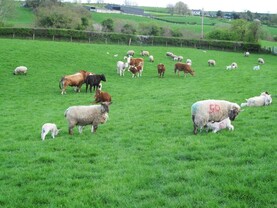This month the European Commission has commissioned a cost-benefit analysis of the proposed measure to make ABS brakes mandatory for tractors with speed ranges of 40km/h to 60 km/h by 2021.
It is expected that the Commission will then decide whether or not to make any changes by drafting an amendment to the Braking Regulation (2015/68) during 2017.
CEMA, the European Agricultural Machinery Association, believes that the EU Commission wrongly considers tractors to be automobiles.
The machinery industry believes that making ABS, or any other similar technology, mandatory can only be justified if there is ample evidence of a risk and sound proof that the technology in question can help avoid that risk.
CEMA claims ABS technology won’t help improve road safety in any statistically significant manner. “With an average tractor fleet renewal rate of 1.7% of total EU-28 tractor sales, it would take more than 20 years before the first fatal accident could statistically be avoided,” said Ulrich Adam, CEMA secretary general.
“By contrast, by improving the lighting and signalling of Europe’s entire tractor fleet could prevent up to 70 fatal accidents each year,” he said in an interview with EurActiv.com.
CEMA has identified potential technical risks if ABS was made compulsory on tractors. And the industry group is claiming that forcing farmers and agricultural contractors to buy tractors with ABS could mean tractor price increases ranging from 2.5% to up to 10%, adding up to of €5,000 to the price of each tractor.
Read more
WATCH: JCB laucnhes noew 8000 series Fastrac






 This is a subscriber-only article
This is a subscriber-only article









SHARING OPTIONS: